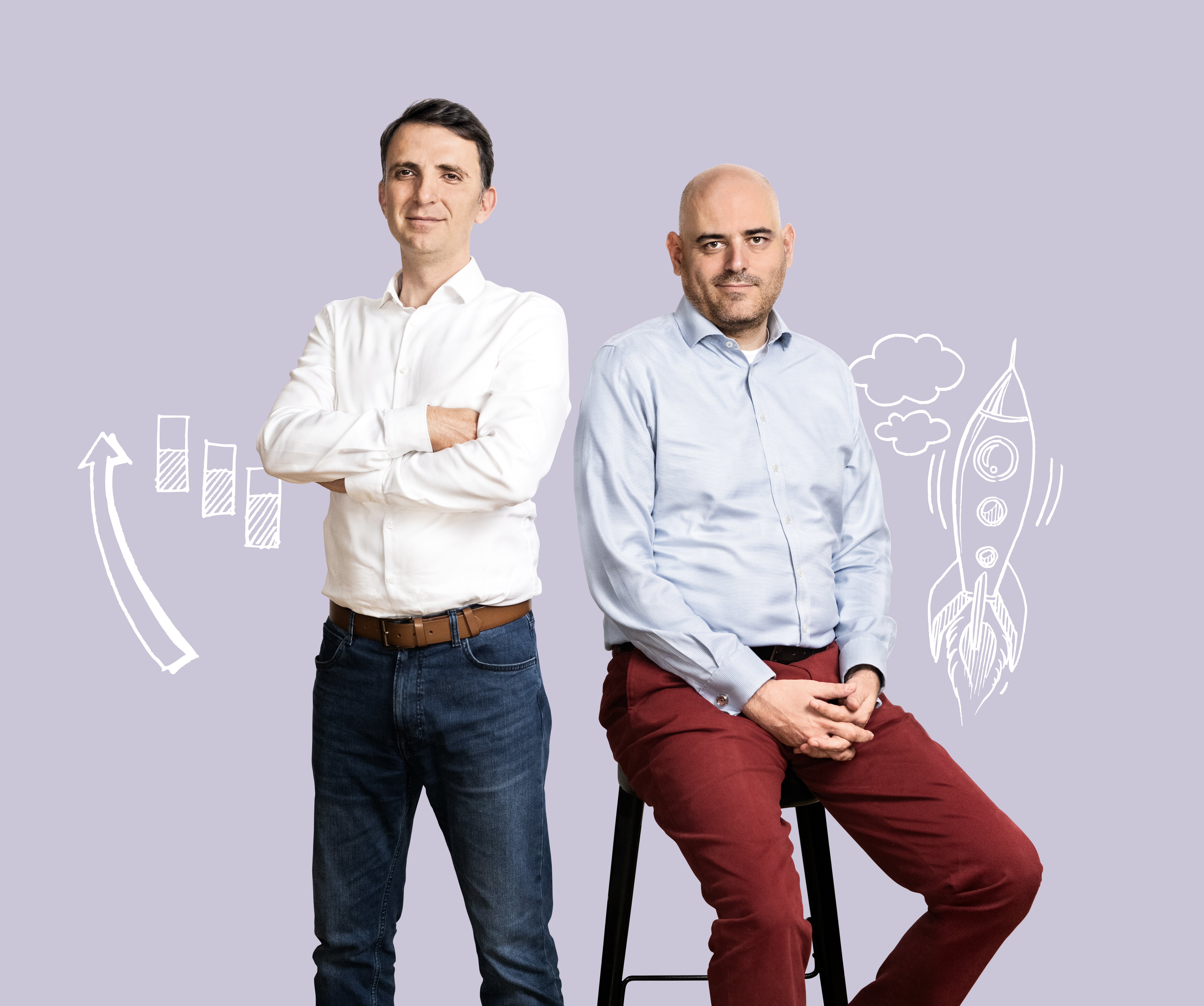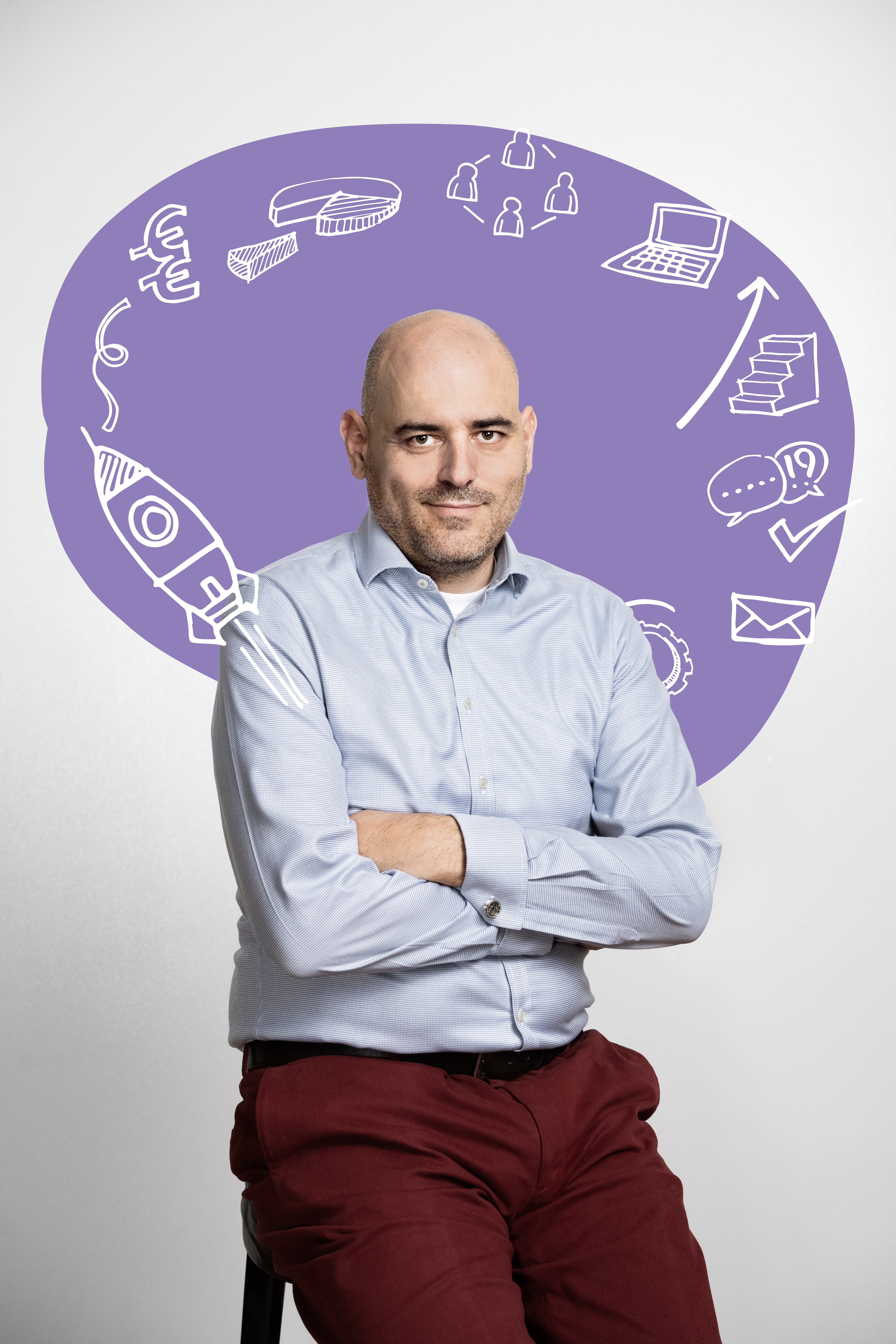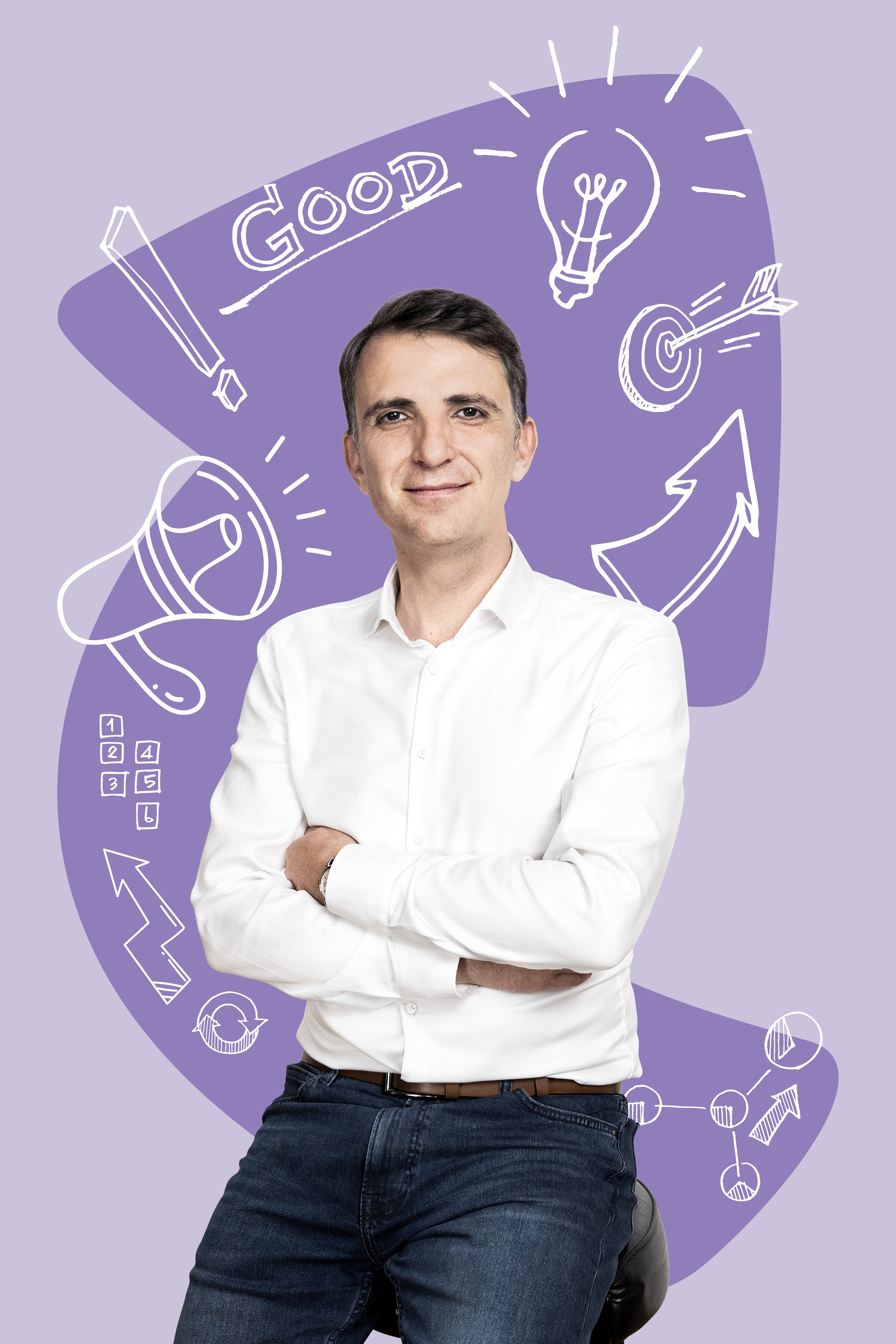
The fund that opens doors to new opportunities
Capital's STORiO project tells the story of the Bulgarian Development Bank Group's Capital Investments Fund, which helps companies grow and unlock their potential
Five years of operation, nine investments and one successful exit. This is the shortest description of the Capital Investments Fund (CIF), which is part of the Bulgarian Development Bank (BDB) Group. Behind these seemingly dry numbers, however, are the inspiring stories of companies from different sectors and at different stages of their existence that have found a trusted partner with whose support they can grow their business and make it more competitive and can conquer new markets.
A closer look at the history and activities of the Fund reveals one more thing – the possibility for other companies to achieve similar successes supported by the Fund.
The state assistant to growing businesses
The idea for the creation of the CIF was born at the end of 2018, with the aim of complementing the palette of tools with which the State Development Bank supports Bulgarian businesses. The Fund started operating in 2019 with a total resource of BGN 65 million. The first two investments were made in the following year – 2020, which was marked by the coronavirus.
Against the backdrop of the challenges facing the economy and the business environment related to the permanent political instability of recent years, the pandemic and the war in Ukraine, the Fund has already managed to allocate almost half of the originally planned resources – by the spring of 2024, BGN 28.6 million had been invested, with a part already returned after the first sale of a company from CIF’s portfolio in the summer of 2022 (see box).
And while there is no fixed timeframe to distribute all the funds, the team's plan is ambitious – in the next year and a half or two the remaining amount to be directed to local companies with a proven business model and growth potential.
‘At the moment we are working on closing several deals and according to our calculations by the end of 2025 the remaining resource may be exhausted. Therefore, we are now starting to think about options where the Fund will have its natural continuation,’ says Tanko Arabadzhiev, CIF’s Chairman of the Board and BDB Executive Officer.
It is the lack of a fixed deadline to build a portfolio that is among the main features of the CIF that distinguish it from other funds. According to the manager, this is a significant advantage, as it allows greater freedom in the selection of companies, without compromising to meet deadlines. The unlimited existence will also allow the resources used for investments to return to the Fund over time and be directed to support new companies.
Perhaps the most characteristic difference, however, is the affiliation to a state group.
‘In many ways, for businesses, such support is key’, stresses the Fund's Executive Director, Stefan Tamnev.
‘One of the companies in our portfolio recently signed a contract with the national Saudi oil company and it was the Fund's investment that was taken as a stamp of confidence by the state. The company's director said that this was an important sign for foreign partners and clients, showing the attitude of the state and building even more trust’, he explains.
While the common perception is that state structures are sluggish and inefficient, the Fund's team is disproving the cliché with its activities. According to the two managers, structuring a deal takes about six months on average. Provided that the company applying for funding is prepared for the process, i.e. has procedures and rules and a good reporting system in place and is able to communicate quickly and efficiently with the Fund and with external advisers that perform so-called due diligence.
For small and large businesses
The maximum amount with which the CIF can support a company is BGN 5 million, and according to Tamnev, the companies financed so far have invested between BGN 800,000 and BGN 5 million. The maximum share that the Fund acquires in exchange for its support is 34%.
The limit of BGN 5 million is common for the entire BDB Group and its subsidiaries, which at first glance seems restrictive. However, belonging to a larger financial family has its advantages.
‘We offer a full range of services that no other fund can do. For example, we are currently working on a deal where the Fund will initially enter, followed by BDB, and our leasing company will finance the purchase of the equipment’, Arabadzhiev points out.
‘Sometimes companies, while they are smaller, are, so to speak, unbankable because they don't have enough assets, so they turn to us for capital. At some point, when they gain some 'muscle', they then use the classic bank products’, Tamnev adds.
Both underline that there is no specific minimum size of a company they would invest in. This is evidenced by the Fund's portfolio, which includes companies with 2022 annual turnovers varying from less than BGN 500,000 to more than BGN 20 million.
However, it is still important that companies have a proven business model and sales exceeding the so-called ‘family and friends’ circle and the final product can be considered validated by the market.
Support where and when needed
Another significant point in the CIF strategy that the two managers draw attention to is that their aim is not to compete for clients with other funds, but to invest where there is insufficient access to capital. The example they give is the real sector. Arabadzhiev cites a study by Endeavour, which says that about 80% of the funds' money is invested in something related to technology, and in 90% of the cases it is in companies in Sofia.
‘At the same time, we find that companies in the real sector, in manufacturing, mostly light industries, need equity financing, good technology and innovation to create new jobs and rеаch their export potential. However, they are disliked by other fund managers simply because it is very difficult for a manufacturing company to grow a thousand times. That's where we come in. We already have a few such examples in our portfolio and are currently looking at others’, he explains.
Another unfilled niche in the ecosystem, according to Arabadzhiev, is that local funds are still more focused on companies in a relatively early stage of growth, while there are not enough capital raising opportunities for more mature businesses. This is also the reason why the CIF is looking for co-investment opportunities with other funds with which they can jointly support a company with a larger lump sum (so-called ticket).
‘When several funds come together in one round and enter together, that also solves the problem; that's the direction we want to work in’, says Arabadzhiev.
As for the periods for which the Fund stays in an investment, they are also not explicitly fixed. According to Tamnev, the recommended investment horizon is 7-10 years, but ‘it very much depends on when we got in, in which phase, whether in the initial scaling phase, or after the company was much more mature’. There are examples of both in the CIF's portfolio. Among the supported companies there are ones where the Fund entered at the very beginning of their existence and others where its support came after a history of nearly 20 years.
‘We set different targets, but of course it all depends on the speed at which companies mature and develop, with the business environment playing an important role here. Sometimes a little time is enough for the investment to achieve its goals and for us to exit. This is the case of our successful exit after two years of involvement in the company’, the manager points out.



